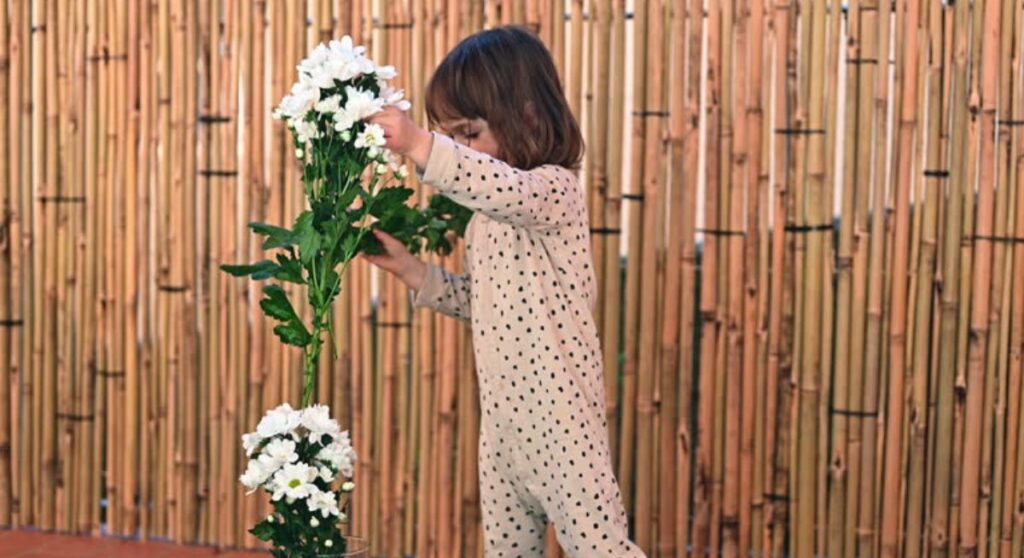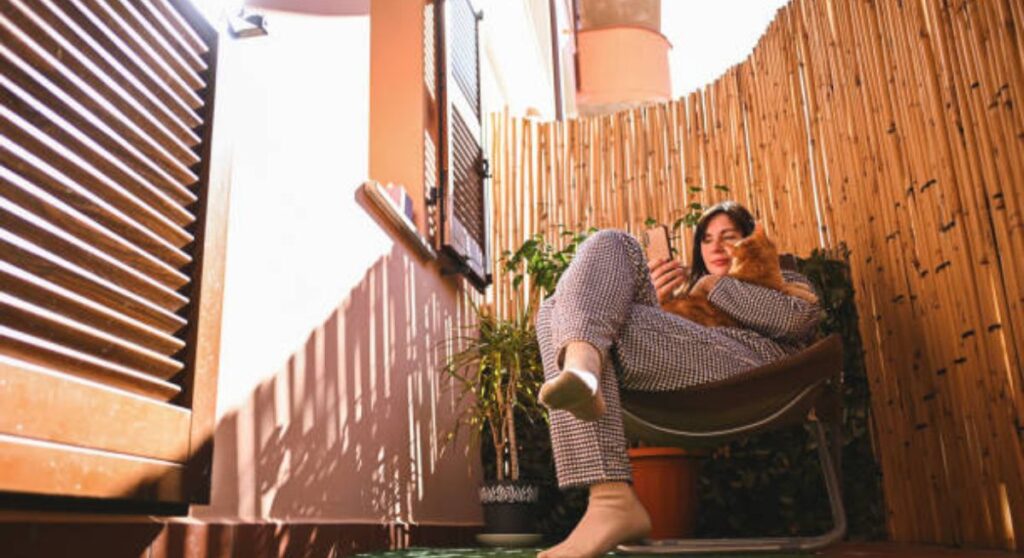Introduction:-
10 Reasons Bamboo Pajamas Are the Future of Sleepwear

Bamboo pajamas have been gaining attention recently, and it’s easy to see why. Not only are they incredibly soft, but they also come with a host of benefits that make them the ideal choice for sleepwear. Whether you’re a hot sleeper, someone who cares about sustainability, or just looking for the most comfortable night’s sleep, bamboo pajamas could be exactly what you need. Here’s why bamboo pajamas are the future of sleepwear..
10 Reasons Bamboo Pajamas Are the Future of Sleepwear
1. Exceptional Breathability
One of the standout features of bamboo pajamas is their breathability. Bamboo fabric naturally wicks moisture away from your skin, keeping you dry and comfortable all night long. This feature makes bamboo pajamas perfect for hot sleepers or those living in warm climates. You’ll stay cool and refreshed, no matter the weather.
2. Super Soft Comfort
Bamboo fabric is softer than cotton and silk, making it one of the most comfortable materials for sleepwear. The smooth texture of bamboo pajamas feels gentle against the skin, reducing irritation and allowing for a cozy night’s sleep. Once you experience the softness of bamboo, you may never want to go back to traditional cotton pajamas.
3. Sustainable and Eco-Friendly
Bamboo is a highly sustainable resource. It grows quickly without the need for pesticides, fertilizers, or excessive water, making bamboo pajamas an environmentally responsible choice. By opting for bamboo sleepwear, you’re contributing to a more sustainable and eco-friendly lifestyle.
4. Hypoallergenic Properties
For those with sensitive skin or allergies, bamboo pajamas are a game-changer. Bamboo fabric is hypoallergenic, which means it’s less likely to cause allergic reactions or irritate sensitive skin. This makes it ideal for people who suffer from skin conditions like eczema or those prone to skin sensitivities.
5. Antibacterial and Odor-Resistant
Bamboo fabric has natural antibacterial properties, which help prevent the growth of bacteria that can cause unpleasant odors. This means your bamboo pajamas will stay fresher for longer, reducing the need for frequent washing. You can enjoy fresh, clean sleepwear night after night.
6. Temperature Regulation
One of the key reasons bamboo pajamas are so popular is their ability to regulate body temperature. The fabric adjusts to your body heat, keeping you warm in the winter and cool in the summer. No more tossing and turning due to being too hot or cold—bamboo pajamas keep you at the perfect temperature.
7. Durability and Longevity
Bamboo fabric is not only soft and sustainable but also durable. It holds up well after multiple washes, maintaining its softness and strength over time. This means bamboo pajamas are a long-lasting investment, making them a cost-effective option compared to other types of sleepwear.
8. Biodegradable
Unlike synthetic fabrics like polyester, bamboo is 100% biodegradable. When you eventually decide to replace your bamboo pajamas, you can rest assured that they will break down naturally and won’t contribute to landfill waste. This makes bamboo pajamas a great choice for environmentally-conscious consumers.
9. Moisture-Wicking Abilities
Bamboo pajamas are excellent at wicking moisture away from the skin, keeping you dry and comfortable. This is especially beneficial for people who sweat at night, as bamboo fabric prevents you from waking up feeling damp or sticky. The moisture-wicking properties also make bamboo pajamas ideal for warmer climates or during the hot summer months.
10. Stylish and Versatile
Bamboo pajamas come in a wide variety of styles, colors, and designs, making them as fashionable as they are functional. Whether you prefer a classic pajama set or a more modern look, there’s a bamboo option to suit your personal style. The versatility of bamboo pajamas ensures that you’ll look good while feeling great.
Do bamboo pajamas help with night sweats?
Yes, bamboo pajamas can help with night sweats due to their excellent moisture-wicking and temperature-regulating properties. Here’s how they address night sweats:

- Moisture-Wicking: Bamboo fabric can absorb up to 40% more moisture than cotton, pulling sweat away from the body and allowing it to evaporate quickly. This helps keep you dry throughout the night, reducing the discomfort from sweating.
- Temperature Regulation: Bamboo pajamas are breathable and help maintain an optimal body temperature. They allow heat to escape, keeping you cool when you’re warm, and they can also trap warmth in colder conditions. This adaptability helps prevent overheating, which is a common trigger for night sweats.
- Antibacterial Properties: Bamboo is naturally antibacterial, which means it can help prevent odors that sometimes occur with excessive sweating.
These features make bamboo pajamas an excellent choice for those who experience night sweats regularly.
How sustainable is bamboo fabric for clothing?
Bamboo fabric can be a sustainable option for clothing, but its overall environmental impact depends heavily on how the bamboo is grown and processed. Here’s a breakdown of its sustainability:

1. Bamboo Growing:
- Rapid Growth: Bamboo is one of the fastest-growing plants in the world, able to grow up to 3 feet per day. This makes it a highly renewable resource.
- Minimal Water and Pesticides: Unlike cotton, bamboo requires little to no irrigation and doesn’t need pesticides or fertilizers to thrive, reducing its impact on soil and water resources.
- Carbon Absorption: Bamboo plants absorb more carbon dioxide than many other plants, which helps reduce greenhouse gases in the atmosphere.
2. Bamboo Fabric Production:
- Mechanical Processing (Sustainable): In this process, bamboo fibers are extracted mechanically (similar to how linen is made from flax). The fibers are then spun into fabric. This method is eco-friendly but labor-intensive and more expensive, resulting in a product called bamboo linen. It retains the plant’s natural qualities but is not as soft as chemically processed bamboo.
- Chemical Processing (Less Sustainable): The more common process for producing bamboo fabric is the viscose (or rayon) method. In this process, bamboo is broken down using harsh chemicals like sodium hydroxide and carbon disulfide to create a soft, silky fabric. This process is highly energy- and water-intensive and can release harmful chemicals into the environment if not properly managed. While the final product, known as bamboo viscose, is soft and breathable, its production can have negative environmental consequences.
3. Biodegradability:
Bamboo fabric, especially when it is mechanically processed, is biodegradable, which makes it a better choice compared to synthetic fabrics like polyester. However, bamboo viscose may take longer to break down depending on the chemical treatments it undergoes.
4. Certifications:
Choosing bamboo fabrics from manufacturers with certifications like Oeko-Tex or Global Organic Textile Standard (GOTS) ensures that the production process is done in a more eco-friendly and responsible way, with reduced chemical usage.
While bamboo itself is a highly sustainable plant, the sustainability of bamboo fabric largely depends on how it is processed. Bamboo linen is an eco-friendly option, but bamboo viscose/rayon has environmental drawbacks due to its chemical-intensive processing. For truly sustainable bamboo clothing, it’s important to choose products made with eco-friendly practices and look for certified sources.
Conclusion
Bamboo pajamas are quickly becoming the go-to choice for sleepwear, and it’s not hard to understand why. From their unmatched softness and temperature-regulating properties to their sustainability and hypoallergenic benefits, bamboo pajamas offer a superior sleeping experience. If you’re looking to upgrade your sleepwear and support eco-friendly fashion, bamboo pajamas are the perfect solution.
The future of sleepwear is here, and it’s made from bamboo.
References
Here are some references that provide further reading and information about the benefits and popularity of bamboo pajamas:
- Sustainability and Eco-Friendly Properties:
- “The Environmental Impact of Bamboo: Is It Really Sustainable?” – GoodOnYou, https://goodonyou.eco/bamboo-fabric-sustainable/.
- “Bamboo as a Renewable Resource” – WWF, https://wwf.panda.org/discover/our_focus/forests_practice/bamboo/.
- Breathability and Temperature Regulation:
- “Why Bamboo Pajamas Are a Hot Sleeper’s Dream” – SweatWellth, https://www.sweatwellth.com/blogs/articles/bamboo-sleepwear-for-hot-sleepers.
- “The Benefits of Bamboo Fabrics in Sleepwear” – The Sleep Advisor, https://www.sleepadvisor.org/bamboo-sleepwear-benefits/.
- Softness and Comfort:
- “Why Bamboo Pajamas Are the Softest Option for a Good Night’s Sleep” – Cozy Earth, https://cozyearth.com/blog/bamboo-pajamas-comfort-benefits.
- “Bamboo vs. Cotton: Which is Softer?” – The Nest Bedding, https://www.nestbedding.com/blogs/news/bamboo-vs-cotton-sheets.
- Hypoallergenic and Antibacterial Properties:
- “Hypoallergenic Bamboo Fabrics: The Perfect Sleepwear for Sensitive Skin” – Allergy Store, https://www.allergystore.com/blogs/news/bamboo-pajamas-allergy-friendly.
- “The Natural Antibacterial Properties of Bamboo Clothing” – Clothing for Sensitive Skin, https://www.sensitiveskinclothing.com/bamboo-fabrics-antibacterial-qualities/.
- Durability and Longevity:
- “How Long Do Bamboo Clothes Last? Durability Insights” – Bamboo Clothing Reviews, https://www.bambooclothingreviews.com/bamboo-clothes-durability/.

